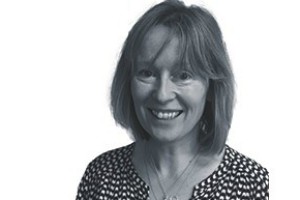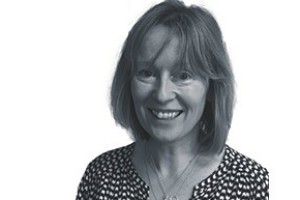Connecting can help us overcome the mental distress in our ranks


I have been ill. ‘Just a virus’, but at the peak of the ravages wrought by said virus on my body (and mind – I always find my mood dips with the slightest period of ill-health) I was having 3 am thoughts along the lines of ‘well, I’ve made it to 48, that’s not so bad’ and ‘at least my will is up to date’.
I don’t know if that’s an illustration of my intolerance of ill-health or of a diminished attachment to life since being widowed. Perhaps it’s both. Now that I am well again I’ve decided not to examine that question too closely, and to simply relish my return to health. My rare brushes with illness always give me a renewed admiration for people who go through life burdened by a multitude of chronic conditions.
As I write this, I am on the train returning from the second day of the ‘Wounded Healer’ conference in London, organised by the indefatigable Dr Clare Gerada. Several hundred people, including speakers such as Henry Marsh and Adam Kay, gathered to discuss burn-out and mental health issues within the medical and allied professions, and how better to prevent distress, illness and suicide in our ranks.
I prefer to hover on the periphery of such gatherings, since there is only so much talk about suicide and its prevention that I can take; my own husband is dead, and the potential for regret and self-flagellation is therefore huge, as I learn more about the strategies and organisations that could have helped him, and helped me too.
Our meeting offered us an experience which was both emotionally charged and enormously comforting
But I am glad that there is an upsurge of interest in this area. The conditions in which we doctors work are so conducive to poor mental health that action is desperately needed. Mid-way through the morning, it was announced that the Practitioner Health Programme, now in its tenth year of existence, is to be rolled out to cover the whole of England. This was greeted with enormous enthusiasm by conference attenders, who are aware of the amazing work that it does to support doctors in difficulty.
The Doctors’ Support Network also had a presence, as did the GP Health Service, both also fantastic sources of support to those of us struggling with burn-out, anxiety, low mood and suicidal leanings. I attended an inspiring talk by ‘Happy MD’ Dike Drummond (his website thehappymd.com is an excellent resource), a former family doctor from the US who ‘burnt out’ himself in the late 1990s and has reinvented himself as a life coach, mentor and motivational speaker to help both individual clinicians and organisations to prevent burn-out.
Finally, there was a second opportunity to meet with my ‘fellow bereaved’ in the setting of the group started by Professor Gerada to bring together those of us who have lost a doctor loved one to suicide or accident. The first time we met was in July. This time, the group had grown to 20, and, once again, our meeting offered us an experience which was both emotionally charged and enormously comforting.
To sit in the same room with others who also live, every moment, with the weighty combination of grief, regret and guilt that is the result of losing someone you love to suicide is very powerful. The resulting solace comes at an emotional cost – tissues are passed round constantly as we talk – but we are all in agreement that we would like to do it all over again, later this year. As EM Forster put it: ‘Only connect.’ I can’t think of anything that helps more – at work, at home and everywhere else.
Dr Kate Harding is a locum GP and hospice doctor in Herefordshire
Pulse July survey
Take our July 2025 survey to potentially win £1.000 worth of tokens

Visit Pulse Reference for details on 140 symptoms, including easily searchable symptoms and categories, offering you a free platform to check symptoms and receive potential diagnoses during consultations.











